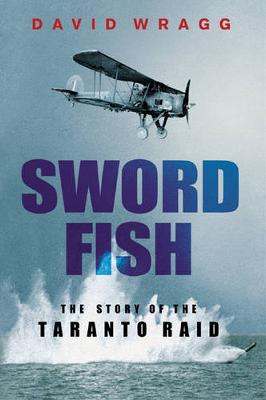Cassell Military Paperbacks
1 total work
In November 1940 Britain was isolated in its stand against Nazi Germany and its ally, Italy. We had no allies save the exiled governments of countries conquered by Germany; the USA was neutral and Russia had signed a pact with Hitler. Britain could not afford to lose control of the Mediterranean, but the Royal Navy was already overstretched by the U-boat war and the threat of invasion. Italy's fleet of modern battleships presented a grave threat to our communications with Egypt and the Suez Canal. On the night of 11 November 1940, 42 members of the Fleet Air Arm took off in 21 obsolete 'Swordfish' biplanes, launched from HMS Illustrious. Their target: the Italian fleet anchorage at Taranto. Pressing home their attack in the face of intense anti-aircraft fire and searchlights, they torpedoed and sank three battleships. Incredibly, all but two of the biplanes survived. The Italian fleet was crippled and the world took note that Britain was far from defeated. No-one was more impressed than the Japanese, who noted how a fleet in harbour could be demolished by air attack.
In this new account of the Royal Navy's most daring operation of the Second World War, David Wragg reveals how the plan began as possible League of Nations response to Italy's invasion of Ethiopia. Drawing on British and Italian records as well as interviews with the aircrew, he tells the full story of a night that changed the course of the war.
In this new account of the Royal Navy's most daring operation of the Second World War, David Wragg reveals how the plan began as possible League of Nations response to Italy's invasion of Ethiopia. Drawing on British and Italian records as well as interviews with the aircrew, he tells the full story of a night that changed the course of the war.
